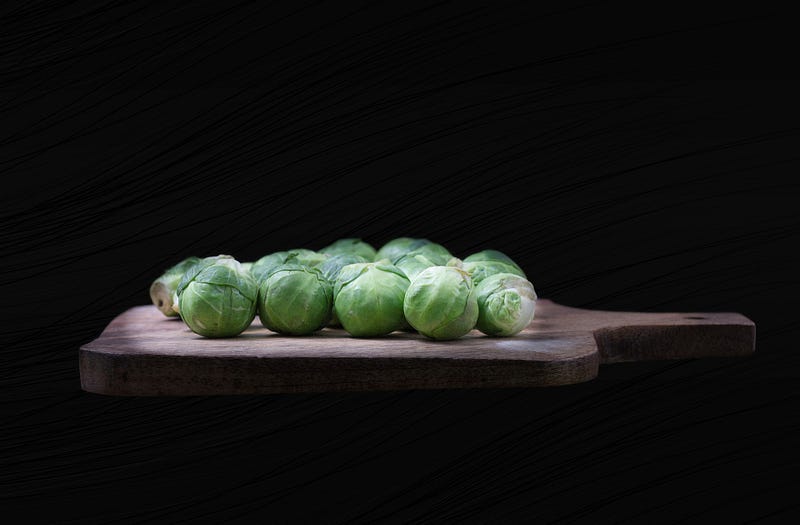# Genetics Behind Your Brussels Sprout Preference Explained
Written on
Chapter 1: Understanding Your Taste Buds
What are your thoughts on Brussels sprouts? Personally, I've come to tolerate them over time, largely because I strive to be a responsible eater who consumes all my veggies. Nevertheless, they are not my go-to choice. To me, they possess a rather intense bitterness, especially when sweet carrots or crispy roasted potatoes are available. I often find myself saving them for last, struggling with their sharp taste and leafy texture. Yet, as a coffee lover, I know I can handle a bit of bitterness. So, perhaps I can learn to appreciate the distinct flavor of sprouts.
As a child, I assumed that everyone experienced Brussels sprouts the same way I did, believing adults merely pretended to enjoy them. However, scientific studies suggest otherwise: approximately 50% of individuals may find these vegetables bitter, while the rest either don’t perceive that bitterness or enjoy the taste.
It’s comforting to know that an aversion to bitterness has evolutionary roots, as many bitter substances in nature can signal potential toxicity.
Relax, Mom; I’m not claiming your Brussels sprouts are harmful.
The bitterness in these sprouts arises from isothiocyanates, which are the result of breaking down glucosinolates—natural compounds that may serve as a defense mechanism against herbivores. Other members of the Brassica family, such as broccoli, cabbage, and cauliflower, share these chemical properties.

Chapter 2: The Role of Genetics
The chemical structure of isothiocyanates is similar to certain synthetic compounds like phenylthiocarbamide (PTC) and 6-n-propylthiouracil (PROP). Both of these bind to a specific receptor linked to the TAS2R38 gene. Genetic variations in this gene, found globally, determine the ability to taste these compounds and, by extension, the bitterness of Brussels sprouts.
Detecting the bitter flavor of PTC is significantly linked to genetic inheritance. Interestingly, it was once used as a rudimentary method to determine paternity during the 1930s and 40s. Nowadays, we recognize that taste perception is a complex trait influenced by both biological and environmental elements.
Research indicates a connection between different variants of the T2R38 receptor gene and the phenomenon of "supertasters"—individuals who experience particular flavors more intensely than the average person. However, as noted in a review published in Critical Reviews in Food Science and Nutrition, this heightened sensitivity is likely the result of a combination of biological factors, many of which remain to be fully explored.

Chapter 3: Conclusion
So, sorry, Mom—it’s not your cooking; it’s just my genes at play.
Key References
- Ishida, M., Hara, M., Fukino, N., Kakizaki, T., & Morimitsu, Y. (2014). Glucosinolate metabolism, functionality, and breeding for the improvement of Brassicaceae vegetables. Breed Sci, 64(1), 48–59. doi: 10.1270/jsbbs.64.48.
- Kim, U. K., Jorgenson, E., Coon, H., Leppert, M., Risch, N., & Drayna, D. (2003). Positional cloning of the human quantitative trait locus underlying taste sensitivity to phenylthiocarbamide. Science, 299(5610), 1221–5. doi: 10.1126/science.1080190.
- Chamoun, E., Mutch, D. M., Allen-Vercoe, E., Buchholz, A. C., Duncan, A. M., Spriet, L. L., Haines, J., & Ma, D. W. L. (2018). A review of the associations between single nucleotide polymorphisms in taste receptors, eating behaviors, and health. Crit Rev Food Sci Nutr, 58(2), 194–207. doi: 10.1080/10408398.2016.1152229.